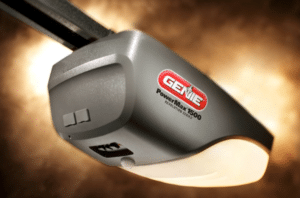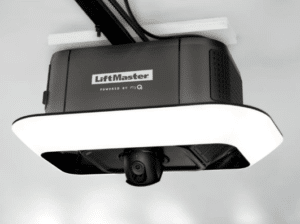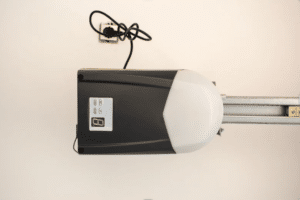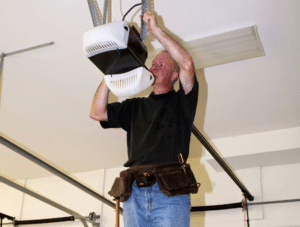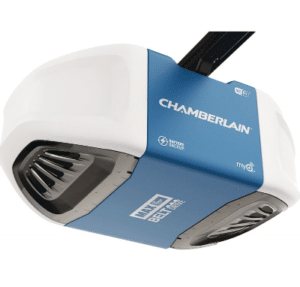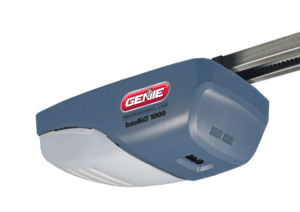A garage door opener is an essential convenience in modern homes, allowing homeowners to effortlessly open and close their garage doors with the simple press of a button. However, like any mechanical device, garage door openers can malfunction, leading to frustration and inconvenience. In this comprehensive guide, we’ll explore the common reasons why a garage door opener not working and provide step-by-step troubleshooting techniques to help you resolve the issue.
Common reasons why a garage door opener not working
There are several potential causes for a garage door opener not functioning properly. Some of the most common reasons include:
- Power supply issues
- Faulty remote control or batteries
- Obstructed or misaligned safety sensors
- Motor or gear problems
- Broken springs or damaged tracks
Troubleshooting steps for a garage door opener not working
Checking the power source
The first step in troubleshooting a garage door opener not working is to check the power source. Ensure that the opener is plugged into a working electrical outlet and that the circuit breaker hasn’t tripped. If the power source seems fine, try unplugging the opener for a few minutes and then plugging it back in to reset the system.
Inspecting the remote control and batteries
If the power source is not the issue, the next step is to inspect the remote control and its batteries. Replace the batteries in the remote control with fresh ones and try operating the garage door opener again. If the problem persists, try using the wall-mounted control panel to open and close the door. If the wall-mounted control works, the issue may be with the remote control itself.
Testing the safety sensors
Garage door openers are equipped with safety sensors that prevent the door from closing if an object or person is in the way. These sensors can become misaligned or obstructed, causing the opener to malfunction. To test the safety sensors:
- Check for any debris or obstructions in front of the sensors.
- Clean the sensor lenses with a soft cloth.
- Ensure that the sensors are properly aligned and facing each other.
- If the sensors appear to be functioning correctly, try bypassing them temporarily to see if the opener operates normally. (Note: This should only be done as a temporary test and should not be left in this state.)
Examining the garage door opener motor
If the power source, remote control, and safety sensors are not the culprits, the issue may lie with the garage door opener motor itself. Listen for any unusual noises or grinding sounds coming from the motor when attempting to operate the door. If you hear such noises, the motor may need to be repaired or replaced.
Checking the garage door springs and tracks
Garage door openers rely on the proper functioning of the door’s springs and tracks. If the springs are broken or the tracks are misaligned, the opener may struggle to open or close the door. Inspect the springs for any signs of damage or wear and ensure that the tracks are properly aligned and free of debris.
Repairing or replacing faulty components
If you’ve identified the faulty component causing the garage door opener to malfunction, you may be able to repair or replace it yourself, depending on your skill level and the complexity of the issue. However, it’s important to exercise caution when working with garage door components, as they can be heavy and under tension. If you’re unsure or uncomfortable with the repair process, it’s best to seek professional assistance.
Preventive maintenance for garage door openers
To minimize the likelihood of garage door opener issues, it’s essential to perform regular preventive maintenance. This includes:
- Lubricating the moving parts, such as the rollers and hinges, annually.
- Inspecting the springs, cables, and pulleys for signs of wear or damage.
- Checking the safety sensors and ensuring they are properly aligned and functioning correctly.
- Testing the opener’s backup battery (if applicable) and replacing it as needed.
- Keeping the area around the garage door clear of debris and obstructions.
When to call a professional for help
While some garage door opener issues can be resolved through DIY troubleshooting, there are instances when it’s advisable to seek professional assistance. Consider calling a professional garage door technician if:
- You’re unable to identify the root cause of the problem after thorough troubleshooting.
- The issue involves complex components, such as the torsion springs or the opener’s circuit board.
- You feel uncomfortable or unsafe attempting the repair yourself.
- The garage door opener is an older model, and replacement parts are difficult to find or install.
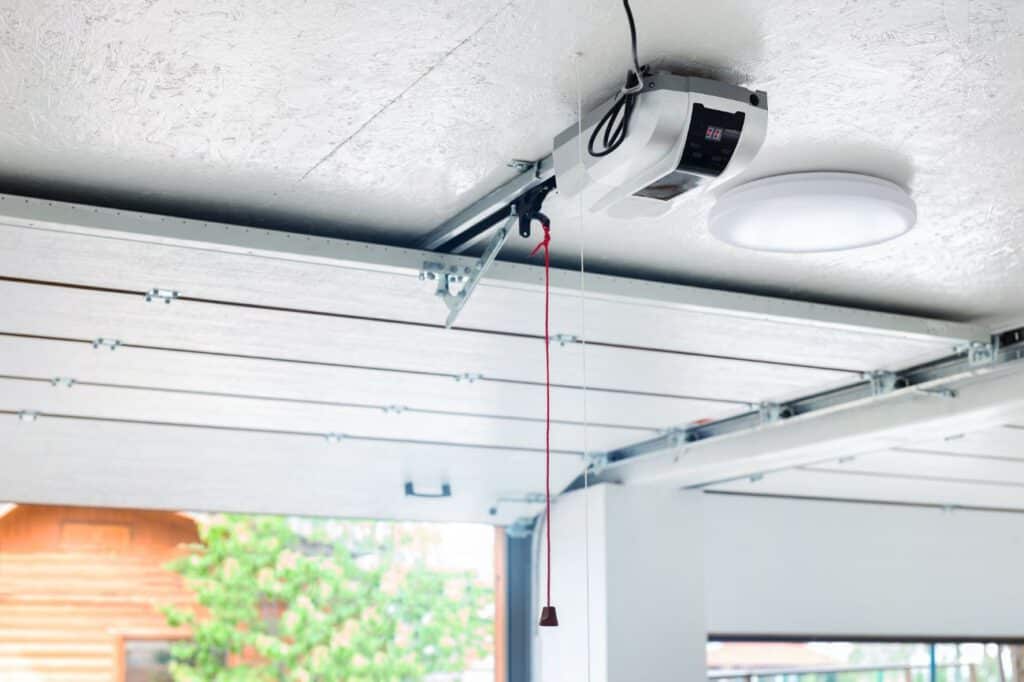
Preventive Maintenance for Garage Door Openers
Regular preventive maintenance is key to ensuring the long-term reliability and performance of your garage door opener. By taking proactive steps to maintain your system, you can extend its lifespan, prevent unexpected breakdowns, and avoid costly repairs down the line.
Lubricate Moving Parts
One of the most important maintenance tasks is to lubricate the moving parts of your garage door opener. This includes the rollers, hinges, and other components that are subject to friction and wear. Use a high-quality, silicone-based lubricant and apply it according to the manufacturer’s instructions, typically on an annual basis.
Check the Safety Sensors
The safety sensors are a critical safety feature of your garage door opener, designed to prevent the door from closing on people or objects. Regularly inspect the sensors to ensure they are properly aligned and functioning correctly. Clean the sensor lenses with a soft cloth, and make any necessary adjustments to maintain optimal performance.
Test the Backup Battery
If your garage door opener is equipped with a backup battery, it’s important to test it periodically to ensure it’s holding a charge. Replace the battery according to the manufacturer’s recommendations, typically every 1-2 years or as needed.
Inspect the Springs and Cables
The garage door’s springs and cables are under significant tension and are critical to the proper operation of the opener. Inspect these components for any signs of wear, damage, or rust, and replace them if necessary. This should be done by a professional, as working with these components can be dangerous if not done correctly.
Clean and Maintain the Tracks
The garage door tracks should be kept clean and free of debris to ensure smooth, unobstructed operation. Wipe down the tracks with a damp cloth and remove any accumulated dirt or grime. If you notice any misalignment or damage to the tracks, address the issue promptly to prevent further problems.
Schedule Regular Tune-ups
Consider scheduling regular tune-ups with a professional garage door technician. They can perform a comprehensive inspection, identify any potential issues, and make any necessary adjustments or repairs to keep your garage door opener functioning at its best.
By following these preventive maintenance steps, you can help ensure the long-term reliability and performance of your garage door opener, avoiding unexpected breakdowns and costly repairs.
When to Call a Professional for Garage Door Opener Repair
While many garage door opener issues can be addressed through DIY troubleshooting, there are instances when it’s best to call in a professional for assistance. Here are some scenarios when you should consider contacting a garage door technician:
Complex or Persistent Issues
If you’ve tried the troubleshooting steps outlined in this guide and the problem persists, it may be time to call in a professional. Complex issues, such as those involving the opener’s circuit board or motor, may require specialized expertise and tools to diagnose and repair.
Safety Concerns
Certain garage door components, such as the torsion springs, can be dangerous to work with if you don’t have the proper training and equipment. If you’re uncomfortable or unsure about attempting a repair, it’s always better to err on the side of caution and call a professional.
Older or Outdated Models
If your garage door opener is an older model, finding replacement parts can be challenging. A professional technician will have access to a wider range of parts and the knowledge to properly install them, ensuring the continued reliable operation of your system.
Warranty or Maintenance Concerns
If your garage door opener is still under warranty or you’re unsure about the maintenance requirements, it’s best to consult with a professional. They can help you navigate the warranty process, perform the necessary maintenance, and ensure that any repairs don’t void the warranty.
Time or Skill Constraints
Some homeowners may simply not have the time, tools, or expertise to tackle a garage door opener repair themselves. In these cases, calling a professional can save you time and hassle, as they have the experience and resources to get the job done quickly and correctly.
Frequently Asked Questions
How long do garage door openers typically last?
The lifespan of a garage door opener can vary depending on the brand, usage, and maintenance. On average, a well-maintained garage door opener can last between 10 to 15 years.
Can I use any remote control with my garage door opener?
No, remote controls are typically programmed to work with a specific garage door opener. Using an incompatible remote control may not work or could potentially cause damage to the opener.
Is it safe to operate a garage door opener without the safety sensors?
No, it’s not recommended to operate a garage door opener without functional safety sensors. The sensors are designed to prevent the door from closing on objects or people, ensuring safety.
Can I lubricate the garage door opener motor?
It’s generally not recommended to lubricate the garage door opener motor itself. The motor is designed to operate without additional lubrication. However, you can lubricate other moving parts, such as the rollers and hinges.
How often should I replace the backup battery in my garage door opener?
The frequency of replacing the backup battery in a garage door opener can vary depending on the manufacturer’s recommendations and usage. As a general guideline, it’s a good idea to replace the backup battery every 1-2 years or as soon as you notice any issues with the battery’s performance.
Conclusion
A malfunctioning garage door opener can be a significant inconvenience, but with the proper troubleshooting techniques and preventive maintenance, many issues can be resolved without the need for professional assistance. By following the steps outlined in this guide, you can diagnose and potentially fix common problems with your garage door opener, saving time and money.
However, it’s important to prioritize safety and seek professional help when you’re still unable to resolve the issue with your garage door opener, don’t hesitate to contact the experts garage door service in Roundup, MT at Hi-Country Dock & Door. Our skilled technicians are equipped to diagnose and repair any garage door opener problem, ensuring your home’s security and convenience. Schedule a service appointment today by calling [Insert phone number] or visiting our website at www.hi-countrydockdoor.com
End Note
At Hi-Country Dock & Door, we’re dedicated to providing exceptional solutions for all your garage door needs. From reliable garage door repair to installing premium Clopay garage doors and efficient Genie openers, our expert team ensures your garage door operates seamlessly.
Explore our wide range of services tailored to meet your specific needs on our Services page. Discover more about our commitment to excellence and customer satisfaction on our About Us page.
Stay informed with the latest tips, industry news, and updates by following us on Facebook. Ready to transform your garage door experience? Contact us today through our Contact Us page and let Hi-Country Dock & Door deliver the quality service you deserve.
Choose Hi-Country Dock & Door for unparalleled expertise and top-notch service. Whether it’s repair, installation, or maintenance, we’re here to ensure your garage door is in perfect working condition. Reach out now and see why we are the trusted choice for homeowners in Lewistown and beyond!



